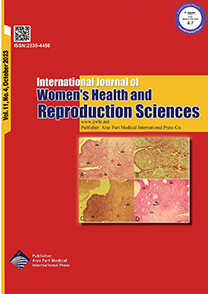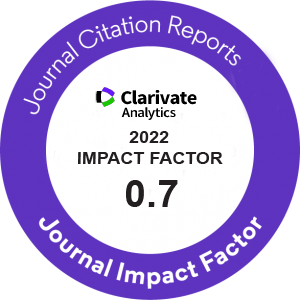| Original Article | |
| The Effect of Breastfeeding Training Based on the Theory of Planned Behavior on the Continuation of Exclusive Breastfeeding in Drug-Dependent Mothers: A Randomized Clinical Trial | |
| Fereshteh Sadeghi1, Gholam-Hosein Zarifnejhad2, Monir Ramezani3,4, Jamshid Jamali5 | |
| 1School of Nursing and Midwifery, Mashhad University of Medical Sciences, Mashhad, Iran 2Department of Community Health Nursing, School of Nursing and Midwifery, Mashhad University of Medical Sciences, Mashhad, Iran 3Nursing and Midwifery Care Research Center, Mashhad University of Medical Sciences, Mashhad, Iran 4Department of Pediatric Nursing, School of Nursing and Midwifery, Mashhad University of Medical Sciences, Mashhad, Iran 5Department of Biostatistics and Epidemiology, School of Health, Mashhad University of Medical Sciences, Mashhad, Iran. |
|
|
IJWHR 2023; 11: 182-190 DOI: 10.15296/ijwhr.2023.46 Viewed : 3684 times Downloaded : 3514 times. Keywords : Theory of planned behavior, Exclusive breastfeeding, Drug-dependent mothers |
|
| Full Text(PDF) | Related Articles | |
| Abstract | |
Objectives: Considering the low rate of exclusive breastfeeding in mothers using drugs and the role of behavioral intention as one of the effective factors on breastfeeding, the present study aimed to determine the impact of breastfeeding training based on the theory of planned behavior on the continuation of exclusive breastfeeding in drug-dependent mothers. Materials and Methods: This clinical trial was performed in three hospitals of Mashhad in 2018. To this end, 52 drug-abusing mothers were randomly divided into experimental and control groups. The intervention protocol consisted of four separate training sessions with an emphasis on the theory of planned behavior. The follow-up process was performed 2 and 4 months after delivery, and the theory of planned behavior and breastfeeding continuity questionnaire was completed accordingly. Data were analyzed by the SPSS (version 16) using the independent t test and chi-square, Mann-Whitney, Friedman, and Wilcoxon tests. Results: Two months after delivery, 88.5% and 3.8% of mothers of the intervention and control groups performed exclusive breastfeeding while this rate was 65.4% and 0.0% four months after delivery, respectively. The results of the chi-square test showed a significant difference between the two groups at 2 and 4 months (P < 0.001). Two months after delivery, the average score of maternal performance on the continuation of exclusive breastfeeding was 91.8 ± 9.2 and 50.8 ± 24.5 in the intervention and control group although it was 89.0±8.7 and 31.0±15.9 4 months after delivery, respectively. Based on the results of the Wilcoxon test, significant differences were found between the groups after 2 and 4 months (P < 0.001). Eventually, the average score of all constructs of the planned behavior theory improved immediately after the intervention, and 2 and 4 months after delivery in the intervention group (P < 0.001). Conclusions: Thus, the implementation of breastfeeding training based on the theory of planned behavior is recommended for drug-dependent mothers to continue exclusive breastfeeding. |
Cite By, Google Scholar
Google Scholar
PubMed
Online Submission System
 IJWHR ENDNOTE ® Style
IJWHR ENDNOTE ® Style
 Tutorials
Tutorials
 Publication Charge
Women's Reproductive Health Research Center
About Journal
Publication Charge
Women's Reproductive Health Research Center
About Journal
Aras Part Medical International Press Editor-in-Chief
Arash Khaki
Mertihan Kurdoglu Deputy Editor
Zafer Akan























